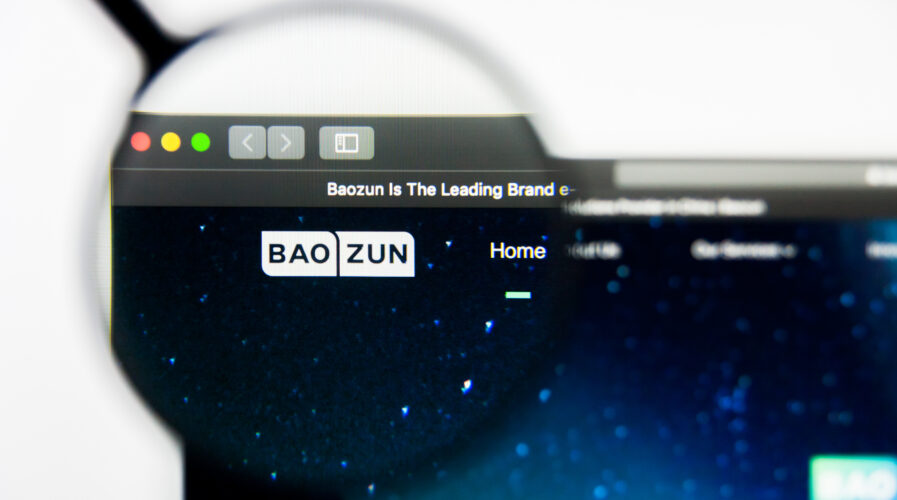
(Source – Shutterstock)
Baozun brings e-commerce strategy know-how to SEA
Having an e-commerce strategy is essential to ensuring online selling business goals can be achieved. When e-commerce first started gaining traction, the strategy for most businesses was simply to get their products and services online and sell them to customers.
As the industry expanded and demand for better services rose, brands started looking at how they could implement personalization into their e-commerce strategy.
Today, an e-commerce strategy comprises an entire journey from personalization, security, to the post-purchase experience. Building a strategy that encompasses all these is critical for a business looking to make the most of its e-commerce journey.
In Southeast Asia, e-commerce sales will total US$89.67 billion in 2022, an increase of US$15.31 billion over the previous year. By 2023, that figure will cross the US$100 billion mark, making Southeast Asia the region to watch for B2C e-selling. With that said, having the right e-commerce service partner to execute the right strategies will be essential for organizations.
Having established its services in China, Baozun Inc. recently announced its new regional headquarters in Singapore, as it seeks to drive e-commerce innovation and bring a competitive advantage to brands in Southeast Asia (SEA). The company has already worked with major brands including Nike in China, making it one of the most sought-after platforms in the region.
What makes Baozun unique is its capability to offer custom end-to-end omnichannel services, tailored to the fast-changing needs of brands in SEA. This encompasses the entire e-commerce value chain covering IT solutions, store operations, digital marketing, customer services, warehousing & logistics.

Victor Liu, Vice President, Baozun Asia
According to Victor Liu, Vice President of Baozun Asia, the conversations they have with their clients in Southeast Asia are a bit more different from China, despite the end goal being the same. Liu, who has been in Singapore in his new role for the past five months, admits that it is still a learning process to serve what’s best for their customers.
“In Southeast Asia, the logistics are huge, There are different countries and many islands. We have a strategic partner to help us cope with this. We integrate our solution to leverage the partnership to provide our services. Another trend among Southeast Asian businesses is the demand for omnichannel services. How we drive the omnichannel experience for our customers is key to accelerating our technology. Social commerce is also a huge factor in this region. Compared to China, social commerce is different in Southeast Asia as there are different platforms, cultures, and behaviors,” explained Liu.
With that said, Liu pointed out that the company takes a ‘Go Global and Grow Local’ strategy when working with businesses in the region. As the culture and habits of shoppers differ based on each country’s economy in the region, this is where Baozun’s technology comes into play. It helps businesses understand customers, based on their cultures and where they are from.
“We want to build a team in different countries to understand the consumers’ behavior, especially the live environment,” added Liu.
An e-commerce strategy for Southeast Asia
While localizing their approach to cater to regional demands is part of Baozun’s expansion plans, the technology used is also equally important. How Baozun works is by offering businesses an e-commerce strategy for their operations. But to ensure the strategy works best, the use of data would be crucial in analyzing and predicting consumer behaviors.
“When we talk about big data, we talk about machine learning. These are technology invented and matured in the internet industry. However, the internet industry has a unique advantage, in terms of being closer to consumers and having big data in a matter of milliseconds,” commented Jason Xie, Vice President of IT at Baozun.

Jason Xie, Vice President of IT, Baozun
At the same time, Xie highlighted that this is different for the retail industry. The retail industry in Southeast Asia is operating in an omnichannel environment, whereby businesses are both offline and online. As such the data is fragmented, and Xie believes the challenge for businesses is to have a closed data loop in terms of data quality, integrity, and latency — challenges that cannot be solved by themselves.
“Currently we have around 7,000 employees, out of which more than 1000 engineers. They gather and work on all this data together to form a comprehensive picture of what the customer behavior is all about,” added Xie.
This data is what fuels the e-commerce strategy Baozun supplies to businesses. This is why both Xie and Liu clearly believe that the business demands drive the technology applications, especially for the Southeast Asian region.
“We talk a lot about live streaming, shoppertainment and such. These types of business needs definitely trigger the need for technology. We have been around for 15 years and know how to provide the data needed for the strategy,” said Liu.
Following its expansion into Singapore and Malaysia as key markets in SEA to expand its footprint, the company is also in the midst of setting up its Philippines office and plans to expand to Indonesia, Vietnam, and Thailand by the end of 2023.
In greater China, Baozun has served over 355 brands in over 8 vertical industries and has generated RMB71.1 billion (US$11.1 billion) GMV in 2021. Today, Baozun covers more than 30 mainstream e-commerce platforms including Tmall, JD.com, WeChat Mini Programs, Pinduoduo, and more in China, and provides all-channel, new retail digital commerce services.
READ MORE
- Strategies for Democratizing GenAI
- The criticality of endpoint management in cybersecurity and operations
- Ethical AI: The renewed importance of safeguarding data and customer privacy in Generative AI applications
- How Japan balances AI-driven opportunities with cybersecurity needs
- Deploying SASE: Benchmarking your approach


